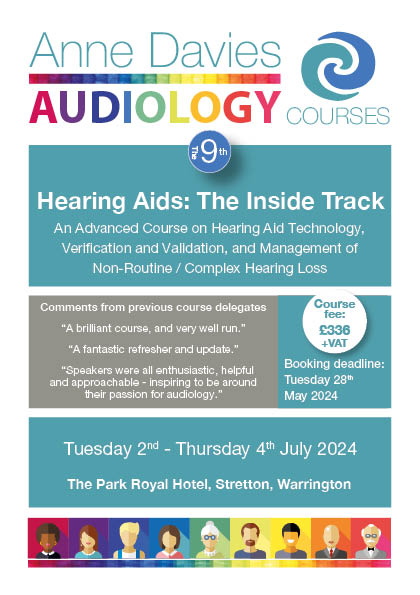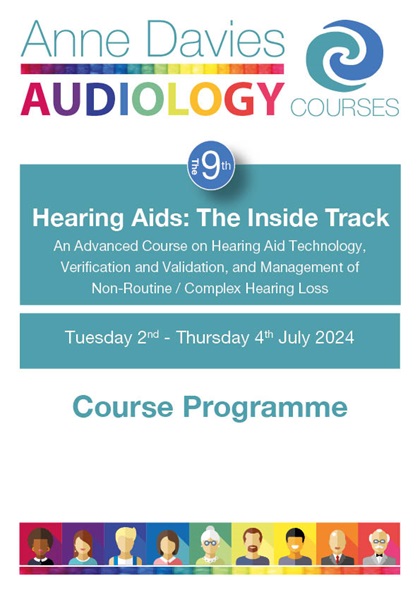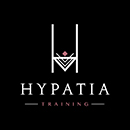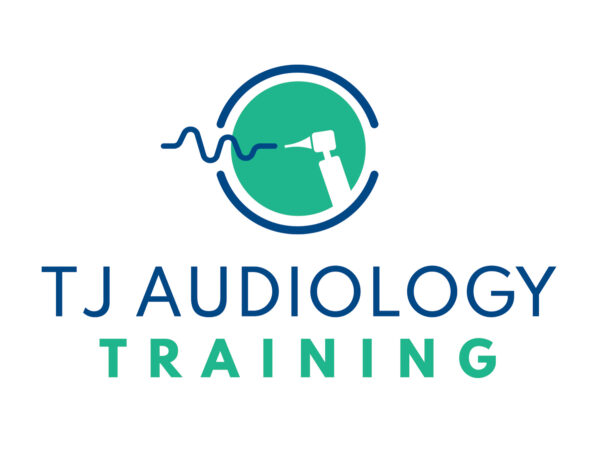Contact me when this course is available to book
Clicking this button will open a new window/tab where you can enter your details. We'll only use this data to notify you when this course is open to book.
£366.00
+ VAT
Venue will be in the North-West, around Manchester: to be confirmed when the course opens for booking.
Non-residential course
Delegates are responsible for booking their own accommodation for this course.
This is a unique collaboration with Oticon, Phonak, GN Hearing, Signia, Widex, Interacoustics, The Audiology Academy, and Hypatia Training. The course is for senior Audiologists (or those wishing to develop their skills) and focuses on practical clinical skills for managing non-routine and complex hearing loss.
This is an exceptional opportunity to learn from expert clinical trainers. The course content includes compression strategies, acoustics and open fittings, speech mapping, speech tests, speech-in-noise assessment, outcomes and benefit, connectivity, e-health, and ear to ear processing. Advanced practice is discussed for non-standard audiogram configurations, asymmetrical and single sided deafness, severe-profound and challenging hearing losses, and fitting musicians. There is emphasis on patient centred care and on key principles in hearing loss rehabilitation.
There is an evening workshop on the Wednesday (7.30pm-9.00pm), which is hands-on discussion and practice covering real ear measurement, speech mapping, test box and advanced verification. Unity, Aurical and Affinity Compact systems will all be available.
Attendees should be familiar with routine hearing aid fittings and real ear measurement, and have experience of basic counselling skills such as reflection, paraphrasing, and asking open questions. Although the course does not specifically address paediatric provision, such as RECD or paediatric outcome measures, the course faculty includes this expertise and they are happy to discuss this individually.
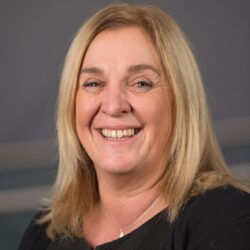 | Heather Dowber Head of Market Access UK |
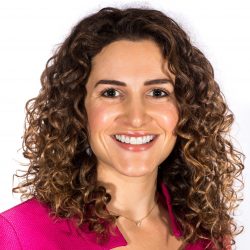 | Samantha Tyndall Regional Manager |
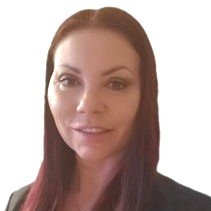 | Julia van Huyssteen Signia Head of Audiology UK & Ireland |
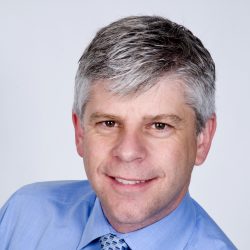 | Paul Leeming National Training Manager |
 | Leigh Martin Director of Interacoustics Academy |
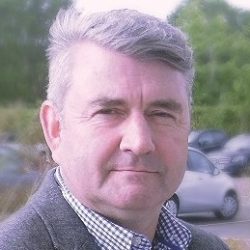 | Graham Hilton Director of Audiology |
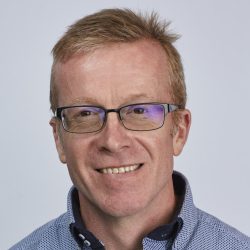 | Chris Cartwright Director of Training |
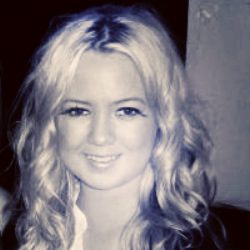 | Amy Lennox Director / Specialised Audiologist |
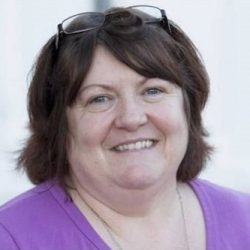 | Dr Christine DePlacido Principal Clinical Scientist & Counsellor |
| Tuesday 7th July 2026 (provisional course dates) | |
|---|---|
| 8.45 | Arrival and Coffee |
| 9.00 | Welcome Anne Davies |
| 9.10 | Course Introduction Heather Dowber |
| 9.30 | The Patient’s Perspective # 1 [40 mins] Heather Dowber |
| 10.15 | Compression and Channels [30 mins] Samantha Tyndall (TBC) |
| 10.50 | Break |
| 11.05 | Theory and Skills for Reflection [30 mins] Dr Christine DePlacido |
| 11.40 | The Patient’s Perspective # 2 [30 mins] Heather Dowber |
| 12.15 | Lunch |
| 1.35 | eHealth in Audiology [30 mins] Samantha Tyndall (TBC) |
| 2.10 | Patient Centred Care # 1 [45 mins] Julia van Huyssteen |
| 3.00 | Break |
| 3.15 | Patient Centred Care #2 [45 mins] Julia van Huyssteen |
| 4.05 | Cognitive Behavioural Therapy in Assessment [30 mins] Dr Christine DePlacido |
| 4.40 | Ear to Ear Processing [20 mins] Samantha Tyndall (TBC) |
| 5.05 | Hearing Aid Apps [20 mins] Samantha Tyndall (TBC) |
| 5.25 | Close of day |
| No evening meal provided, please make your own arrangements. | |
| Wednesday 8th July 2026 (provisional course dates) | |
| 8.45 | Coffee |
| 9.00 | Prescriptive formulae [30 mins] Leigh Martin (TBC) |
| 9.35 | Acoustics and Instant-Tips [30 mins] Paul Leeming |
| 10.10 | Cognitive Behavioural Therapy in Rehabilitation [30 mins] Dr Christine DePlacido |
| 10.45 | Break |
| 11.00 | Real Ear Measurements [35 mins] Leigh Martin (TBC) |
| 11.40 | Connectivity [30 mins] Paul Leeming |
| 12.10 | Lunchtime exercise Paul Leeming & Amy Lennox |
| 12.20 | Lunch |
| 1.20 | Feedback on the Lunchtime Exercise [15 mins] Paul Leeming |
| 1.40 | Visible Speech Mapping [35 mins] Leigh Martin (TBC) |
| 2.20 | Challenging Audiograms [40 mins] Chris Cartwright |
| 3.05 | Break |
| 3.20 | Outcomes and Benefit [40 mins] Dr Christine DePlacido |
| 4.05 | Speech Tests [30 mins] Amy Lennox |
| 4.40 | Fitting Severe and Profound Losses [30 mins] Graham Hilton |
| 5.10 | Discussion & Questions [15 mins] Paul Leeming & Amy Lennox |
| 5.25 | Close of day |
| 6.00 | Evening meal, in the hotel restaurant |
| 7.30 – 9.00 | EVENING WORKSHOP [1.5 hours] Course Faculty |
| Thursday 9th July 2026 (provisional course dates) | |
| 8.45 | Coffee |
| 9.00 | Feedback on the ‘App’ Exercise [15 mins] Amy Lennox |
| 9.20 | The Most Challenging Clients [30 mins] Chris Cartwright |
| 9.55 | Speech-in-Noise Assessment [35 mins] Amy Lennox |
| 10.35 | Asymmetrical Losses and Single Sided Deafness [30 mins] Chris Cartwright |
| 11.10 | Break |
| 11.25 | Considerations when Fitting Musicians [30 mins] Amy Lennox |
| 12.00 | Introduction to Aural Rehabilitation [30 mins] TBC |
| 12.30 | Lunch |
| 1.30 | Introduction to Auditory Training Resources [30 mins] TBC |
| 2.05 | New Technology [30 mins] Chris Cartwright |
| 2.40 | Putting it all together [30 mins] Dr Christine DePlacido |
| 3.15 | Closing Plenary Session Anne Davies & Course Faculty |
| 3.45 | Close of Course |
The Patient’s Perspective (Heather Dowber)
Exploring the perspective, agenda, questions and concerns our patients bring, which we may not have previously considered.
Compression and Channels (Samantha Tyndall)
Types of compression and how they impact on the speech signal. What exactly are channels, and is more always more?
Theory and Skills for Reflection (Dr Christine DePlacido)
This talk will explore the various models of reflection available and provide an overview of the different ways in which reflections can be captured and analysed to develop our practice.
eHealth in Audiology (Samantha Tyndall)
We tend to think of e-health (also known as telehealth or telecare) as remote fine tuning, but there are many ways to engage with patients remotely to extend the reach and efficacy of your service.
Patient Centred Care (Julia van Huyssteen)
We are all Audiologists for various reasons and one of them has to be because we want to help people with hearing loss. Are we doing it in the best way possible? Are we putting our patients at the centre of the appointment? We’d like to think so, but let’s have a closer look at what Patient Centred Care really looks like and let’s remind ourselves what it means to be led by the patient. During this workshop, will cover the Calgary Cambridge as well as the Four Habits models of Patient Centred Care and…don’t be afraid to do a bit of ‘real play’.
Cognitive Behavioural Therapy in Assessment (Dr Christine DePlacido)
Cognitive Behavioural techniques can be used to help patients explore their thoughts and beliefs about their hearing. This talk will give an overview of these techniques and how to use them when assessing patients for aural rehabilitation.
Ear to Ear Processing (Samantha Tyndall)
Wireless? Binaural? Ear-to-Ear? What exactly do these terms mean and how does your patient benefit?
Hearing Aid Apps (Samantha Tyndall)
An overview of the wide range of apps now available to support hearing care.
Prescription formulae (Leigh Martin)
An overview of how to select the correct prescription for your patient. How and why do they vary? What influence do the correction factors have on the outcome and when might you want to utilise them? This talk also provides an introduction to why you may wish to think differently about which formulae you use in different cases.
Acoustics and Instant-Tips (Paul Leeming)
Let’s not forget about the ‘plumbing’. Even with instant ear tips, a good acoustic seal and the appropriate venting is still just as important. Also we need to consider how the frequency response and gain is affected by different hearing aid styles, from conventional tubing, thin tubing and receivers-in-the ear types.
Cognitive Behavioural Therapy in Rehabilitation (Dr Christine DePlacido)
Using Cognitive Behavioural Therapy techniques can help patients identify and quantify the level of impact of their hearing loss. It can also help with goal setting and improve outcomes from rehabilitation. This talk will demonstrate the use of these techniques.
Real Ear Measurements and Visible Speech Mapping (Leigh Martin)
Aiming to get the best from your real-ear measurement equipment? These sessions offer an in-depth discussion on both classic REM and speech mapping techniques, with the aim of boosting confidence in prescribing gain (no, do we mean output?). We will discuss what the various correction factors do to the formulae and when they should be applied, together with how to interpret subjective feedback from the patient and utilise this in your fitting.
Connectivity (Paul Leeming)
Exploring the different wireless protocols, from Near field, Bluetooth, Bluetooth Smart and beyond. How can we use wireless technology for assistive listening devices, plus the applications of smart phones and tablets.
Challenging Audiograms (Chris Cartwright)
Review of the evidence and guidelines for fitting reverse slope, cookie bite, severe ski slope and left corner audiograms.
Outcomes and Benefit (Dr Christine DePlacido)
This talk outlines the use of outcome measures. The Glasgow Hearing Aid Benefit Profile will be used to demonstrate how outcome measures can help to distinguish between the need for further technological or counselling approaches in complex cases.
Speech Tests (Amy Lennox)
An overview of the clinical applications of Speech Testing, and demonstration of a streamlined methodology to perform this safely but effectively in a busy time-pressured clinic.
Fitting Severe and Profound Losses (Graham Hilton)
Exploring the unique challenges and considerations when fitting this group of clients. Including reasons for variability, loss of auditory resolution, loss of high frequency information and loss of SNR, and possible solutions for each.
The Most Challenging Clients (Chris Cartwright)
Exploring the assessment, hearing instrument fitting, and management of the most difficult to work with clients ie. congenital Deaf/Blind and Profound Learning disabilities.
Speech-in-Noise Assessment (Amy Lennox)
An overview of the clinical applications of Speech-In-Noise testing. Focusing on ANL and QuickSIN, which measure ‘intelligibility’ and ‘annoyance’. These results can be plotted on a red flag matrix to estimate potential patient outcomes, helping clinicians to set appropriate expectations.
Asymmetrical Losses and Single Sided Deafness (Chris Cartwright)
Review of causes, statistics, implications for clients, binaural hearing advantages, and technological options for management.
Considerations when Fitting Musicians (Amy Lennox)
Music is an important part of many people’s lives, it can provoke memories, emotion and for some people their financial livelihood depends on it. Musicians are known to be more sensitive to frequencies and pitch, they often notice the smallest details in sound and this can be a challenge in Audiology. Hearing Aid algorithms and prescription targets have been developed over a number of years and are ever improving, however, the focus of these is to boost speech audibility and/or intelligibility. Music frequency patterns behave differently to speech and therefore it is essential to apply different fitting rationale and verification to those whom music is a big part of their lives.
Introduction to Aural Rehabilitation (TBC)
Introducing the basic principles of auditory development, neuroplasticity and the effect on our brain of auditory deprivation.
Introduction to Auditory Training Resources (TBC)
Useful free of charge resources and tools that can be used for auditory training.
New Technology (Chris Cartwright)
Exploring some of the new innovations beyond our normal HI / CI / BAHS, that will impact either the client or Audiologists and their service delivery.
Putting it All Together (Dr Christine DePlacido)
Audiology is an art and a science. We need to take the technical information we gain from assessments and marry this with the goals and expectations of the patient and their family, in order to deliver person centred service. How do we do this in practice? In this talk we will look at principles of person-centredness and how to use objective and subjective information effectively.
“A brilliant course, and very well run.”
“A fantastic refresher and update.”
“Speakers were all enthusiastic, helpful and approachable – inspiring to be around their passion for audiology.”
Accommodation costs are not included in the course fee.
The course venue will be in the North-West, around Manchester: details will be confirmed when the course is open for booking. Please contact us if you have any questions.
The course fee includes evening meal on the Wednesday evening of the course at 6.00pm. On Tuesday evening, please make your own arrangements for evening meal.
Leaving the course early on the final afternoon is not advised. Train travel from local stations should be booked for no earlier than 4.30pm.
Purchase order number and invoice address (supplier: Anne Davies Audiology Courses).
Cheque (payable to Anne Davies Audiology Courses).
Credit / debit card. Pay online at time of booking.
Monthly instalments by direct debit (UK customers). Two payments of 50% over two months, or three payments of 33.3% over three months, interest free.
If you are travelling from overseas and require a visa: once you register and pay, we can provide a letter confirming your place on the course. Please contact us to discuss.

